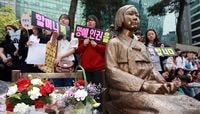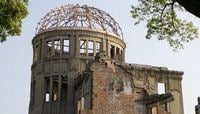
<Introduction>
On August 15, Prime Minister Shinzo Abe will publish a short statement to commemorate the seventieth anniversary of the end of World War II. This follows similar practices of his predecessors. Prime Minister Tomiichi Murayama started by delivering a short statement on the fiftieth anniversary in 1995. Prime Minister Junichiro Koizumi followed in 2005 with the statement on the sixtieth anniversary.Many have been speculating what the statement will be like.
Will Prime Minister Abe follow the direction set by the Murayama and Koizumi statements, expressing remorse for the suffering of Asian neighbors, apologizing for Japan’s past aggression and colonization, and pledging future international collaboration to maintain world peace? Will he use what some consider important key phrases in the Murayama and Koizumi statements, such as “deep remorse” and “heartfelt apology” for “tremendous damage and suffering to the people of many countries, particularly to those of Asian nations” Japan caused “through its colonial rule and aggression”? Or will he avoid repeating those words to stress Japan’s new approach to diplomacy,which he sometimes refers to as “active pacifism,” although this would be taken by some as confirmation of a view of Abe as a “nationalistic revisionist” in his approach to the wartime past?
The wording of this statement will be carefully scrutinized by governments in the region and beyond, and by experts around the globe. For many observers, it offers a crucial indicator of Japan’s future trajectory. And most importantly, it could significantly shape Japan’s relations with its neighbors in Northeast Asia — mainly China and Korea — and with the United States. So it is not surprising that many experts have already opined about what the prime minister should, and should not, say in this statement. The Japanese Cabinet Office convened a sixteen-person expert panel to offer advice to the prime minister on the preparation of the war anniversary statement.
As Japan researchers at Stanford, we were curious about how our colleagues view the role of the seventieth anniversary statement by Prime Minister Abe. We reached out to the Asia experts at our Walter H. Shorenstein Asia-Pacific Research Center (APARC) but also more broadly to colleagues in the Stanford faculty and to the larger community of experts in the Freeman Spogli Institute for International Studies (FSI) at Stanford University, of which we are a part. Under its umbrella, FSI brings together a wide range of specialists on international issues, although they do not necessarily focus on Asia or on security issues.
We asked our colleagues what they would say in the seventieth anniversary statement if they were the prime minister of Japan, and to write their own version of the statement. We imposed three constraints on them, in addition to a tight deadline. First, the goal of the statement is to garner support for an increasing leadership role for Japan in East Asia and the world. We believe this is one of the most important goals of Prime Minister Abe himself. Second, the statement needs to touch on what the war meant, because this is a commemoration of the end of World War II. Finally, the statement cannot exceed 700 words. The English version of the Murayama statement has 658 words and the Koizumi statement has 591 words, so a 700-word limit is roughly in line with the past statements (if they chose to write in Japanese, we imposed a 1,300 character limit, though no one took up that offer).We provided the text of the Murayama statement and the Koizumi statement (in both English and Japanese) as reference.
The notion of outsiders writing in the voice of the Japanese prime minister was clearly somewhat provocative, and daunting for many who might have more easily just offered their advice, but not in the form of a full statement. But we felt it was important to envision what a full statement might be in our minds. In the end, eight colleagues (including both of us) took up this challenge and prepared the statements that they would deliver if they were Prime Minister Abe. This book is a compilation of those statements. It also contains both the Murayama statement and the Koizumi statement to allow comparison and is being published in both English and Japanese. The Japanese translation service was provided by gengo.com. In preparing the final Japanese version for publication, one of us (Hoshi) further refined the Japanese translations to make them easier to read.
Readers will find that all eight statements share some essential elements. For example, all of them discuss how Japan will be able to contribute to the peace and prosperity of the world going forward. This may be the reflection of the first constraint that we imposed: the statement tries to garner support for Japan’s increased leadership in the world. All eight statements also show remorse for Japan’s actions before and during the war and point out that Japan needs to face the historical facts in order to be able to play a leadership role going forward. The statements, however, differ in how they express remorse and apology and what kind of leadership role Japan is expected to play in the future.
By publishing these statements, we are not trying to influence the content of Prime Minister Abe’s statement. We know we would not have any influence anyway. Rather, our goal is to understand the diversity of reasonable views on the issue of Japan’s responsibility for the cruel and violent war and Japan’s role in building a peaceful and prosperous world. One thing that all of us realized in undertaking this exercise is that it was much more difficult than we initially thought to write up a short statement to fully address the issues. If readers can appreciate our efforts and, even better, find a few ideas in these statements useful and/or refreshing, we consider this project successful.
We thank our colleagues at FSI making this project possible. We are, of course, grateful to the colleagues who actually wrote the statements, but many others gave us valuable feedback in shaping this project. Some colleagues told us this is a great idea. Some others told us this is a foolish venture. Many of them told us this is a unique approach. We thank them all. Finally, we thank Meiko Kotani and George Krompacky for compiling this book. Meiko also helped us at every stage of this project, sending out the calls to our colleagues, collecting the statements, and sending those (including this introduction) to gengo.com for translation. We cannot thank her enough.
<Alberto Diaz-Cayeros>

It has now been seventy years since the end of the war, and Japan has proved its commitment to never again use force in its engagement with the rest of the world. The lives lost in the war should remind us that every human life is precious. As we deepen our collaboration with the international community, we must leverage our prosperity and peace to enhance the life chances and opportunities of the less fortunate peoples and nations around the globe, especially in the Pacific Rim.
We should not forget that pre-war Japan caused enormous suffering to its neighbors and its own people through colonial rule and aggression. We express once again our deepest apologies. The memory of that violence is receding into the distant past. Two generations of Japanese citizens have experienced unprecedented standards of living and conditions of human security that elude the great majority in the developing world. Japan has been at peace with its neighbors. We have succeeded in crafting a harmonious society ensuring equality, dignity, high standards of living, and negligible levels of crime and violence. It is time for Japan to honor the memory of those who suffered by sharing what we have learned about how to organize a prosperous and safe nation with the rest of the world. That should be our most lasting internationalist aspiration.
In the aftermath of the war Japan was no different from any country with impoverished and dislocated populations. But Japan rebuilt itself with hard work, institutional safeguards that guaranteed keeping peace both internally and externally, and the aid of the international community. It is our turn to help our neighbors and trade partners, not just in Asia and Latin America, but throughout the world. We can take a leadership role at the global scale, helping to save human lives from premature death, as a consequence of disease,violence, or poverty.
Trade and financial flows will continue cementing the ties that bind us to the international community. But the reduction in transportation and communication costs, and the accelerated advances in technology mean that every nation is now our neighbor. We are just as connected to Peru as to Mexico, to Germany as to the United States; to China as to India. The plight of the impoverished populations in Africa, Asia or Latin America is no different from our own in 1945. We can share what we have learned and achieved with the rest of the world so that together we can tackle the grand challenges of our time: the prevention of premature infant deaths, the abatement of climate change dislocations, the development of sustainable sources of energy, the guarantee of democratic freedoms and rights. To achieve this aim, we can share some of our wealth through aid and commit the Japanese people to the solidarity and hard work of the era of reconstruction, but this time gearing our efforts toward our less fortunate neighbors. Let us take a proactive leadership in promoting the values that have inspired us, the hard-learned lessons of our growth experience, and the hard work ethic of our people to construct a more equitable, prosperous, and peaceful world.
<Peter Duus>

August 15, 1945, was a day of immense historical importance to the world. For many nations it was a day of liberation from wartime fear of death and destruction, but for Japan it was a day of awakening. For nearly a decade and a half, the Japanese people thought that they were fighting for their country’s survival, but now they discovered that they had been engaged in a reckless war of aggression and territorial expansion that had brought them only suffering and humiliation.
The leaders whose miscalculated plans and misguided dreams led to the war were duly brought to justice before an international court, whose judgments the Japanese government accepted and has continued to accept for nearly seven decades. But even though those leaders were condemned for their war responsibility, and the public has repudiated their mistaken policies, as a people we can only feel deep remorse for the war and again offer contrition for its historical legacy.
We must express our grief for all the victims of the war at home and abroad: the young soldiers and sailors who died in battle; the innocent civilians who lost their lives or families in land and air attacks; the victims of rape, pillage, and vivisection; the prisoners of war and forced laborers treated with brutality or cruelty; and all those who continue to suffer from the physical and mental wounds of war even today.
As a result of their own tragic war experience, the Japanese people have learned the value of peace. We have again embraced a long historical tradition of living at concord with our neighbors that was interrupted by only a half century of colonial and military expansion. Our constitution renounces the use of military force to resolve international disputes; our government seeks to resolve disagreements and disputes with other nations through peaceful diplomacy and dialogue; and our young people are free from the obligation of military conscription.
To be sure, like all countries, Japan has a universal right to defend its people and territory if attacked by a hostile force. To that end Japan maintains land, air and naval forces to repel such attacks. But these forces have been deployed overseas only for peace-keeping operations. We understand that the most important bulwark of our security is not military superiority but the trust and amity of our neighbors in the Asia-Pacific region.
The Japanese people are patriotic, and they are proud of their country. The country of which they are proud is not the one that fought the war but the one that emerged successfully from wartime devastation. By dint of hard work, determination, and devotion to economic development rather than military build-up, our citizens have made Japan one of the most prosperous and stable societies in the world. Owing to their wisdom and untiring efforts they have prospered materially and culturally.
The Japanese people are also grateful for the indispensable support and assistance extended to them in the postwar years by many countries, including former enemies like the United States and other neighbors in the Asia-Pacific region. And we are proud to have reciprocated by giving the same kind of support and assistance to other nations throughout the world for the sake of global peace and prosperity.
As we look to future, it is our earnest wish to continue enjoying the priceless blessings of peace, but we know it is our moral duty to remember the horrors of war and to convey these memories to coming generations so that we do not repeat the grave errors of the past. As we move forward in this still new century many new and complex challenges will face the Japanese people but we will hold to our pledge never again to wage a misguided war of aggression.
<Thomas Fingar>

Seventy years have passed since the end of World War II and the beginning of an era of unprecedented peace and prosperity in East Asia. Japan bears a heavy responsibility for the destruction and human tragedy caused by the way our forebears pursued national interests in the very different political context of their historical era. But Japan also deserves credit for its peaceful policies and contributions to regional prosperity and stability in the seven decades since the end of that war. We cannot change and must never forget the past, but our focus should be on learning from history to ensure a better future.
World War II was the culmination of a century of conflict in Asia and, hopefully, the final chapter in the long history of attempts by governments to pursue nationalist objectives through conquest and disregard for the rights and interests of people in other countries. Attitudes and actions that were common for a long time are now considered unacceptable. War should no longer be considered “the continuation of politics by other means.” Japan maintains a strong military for deterrence and self-defense, but our people and our policies reject the use of force to achieve political or economic objectives.
In the decades after 1945, Japan rebuilt its economy and willingly accepted the greater responsibilities expected of those who have achieved prosperity and the capacity to help others. We have done so despite unfounded accusations of resurgent militarism and inadequate sincerity when acknowledging and apologizing for the actions of past generations. I consider that unfortunate and unfair because Japanese consider it more appropriate to judge us on the basis of our actions during the past seventy years and what we hope to do in the future.
Japan has learned and applied critical lessons from the past. We have limited our defense expenditures, eschewed acquisition of nuclear weapons, and operated within the parameters of international law and decisions of the United Nations. We have gained prosperity and security through participation in the rule-based liberal international order established by “Free World” nations during the Cold War, and we have contributed to the modernization and prosperity of others through investment, generous assistance programs, and transfers of technology
and know-how. Our actions during the last seven decades are neither anomalous nor accidental. They are the direct result of lessons learned from our past experience and the unshakeable commitment of our people to provide a clear and positive alternative to old-style international relations. We would like to provide leadership as a permanent member of the United Nations Security Council, but until that goal is achieved, we will continue to regard ourselves as an exemplar of what can be achieved through cooperation and self-restraint.
In this year of remembrance, let us resolve together to ensure that no future generation will experience the destruction, pain, and reconciliation challenges that have caused so much anguish during my lifetime. Our economies have become more integrated and more interdependent, but our institutions are inadequate to meet the demands of the twenty-first century or the requirements for sustained peace and prosperity. The discredited effort to achieve co-prosperity through conquest will never be repeated by Japan and must never again be attempted by any nation. But we can and must do better than simply avoid past mistakes. We owe it to our forebears, ourselves, and our descendants to overcome prejudices and build enduring institutions that transcend boundaries and make resort to force unthinkable. Japan is prepared to join such an effort and to lead if others will allow us to do so. Our goal must be to build inclusive mechanisms that protect the interests of all and disadvantage none. Our region is too large and too diverse to eliminate all points of friction and competing interests, but we all understand the difference between existential threats to all and intractable problems that can be deferred for resolution by future generations. Let us make this year of remembrance a year of reconciliation. Let us also resolve to make the eightieth anniversary of World War II the tenth anniversary of a more cooperative, more inclusive, and more secure region.
<David Holloway>
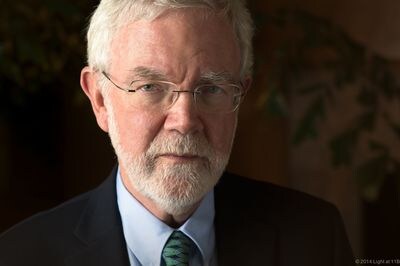
Seventy years have passed since the end of the war. We still grieve when we recall the millions of people who fell victim to that war at home and abroad. It is right for us to honor their memory and to reflect upon the meaning of the war for us today.
Japan has risen from defeat and destruction to become a prosperous society. We are proud of this achievement and grateful for the help we have received from the countries of the world, in the first place the United States. We havebeen at peace for seventy years, and that has made possible the prosperity we now enjoy.
Twenty years ago Prime Minister Murayama made a profound and historic statement:
“During a certain period in the not too distant past, Japan, following a mistaken national policy, advanced along the road to war, only to ensnare the Japanese people in a fateful crisis, and, through its colonial rule and aggression, caused tremendous damage and suffering to the people of many countries, particularly to those of Asian nations. In the hope that no such mistake be made in the future, I regard, in a spirit of humility, these irrefutable facts of history, and express here once again my feelings of deep remorse and state my heartfelt apology. Allow me also to express my feelings of profound mourning for all victims, both at home and abroad, of that history.”
Prime Minister Murayama was right to give solemn expression to these sentiments and now, with equal solemnity, I reaffirm what he said. It is the right and the honorable thing to do.
We live in a turbulent and changing world. It is therefore particularly important to keep in mind the horrors of war and the policies that can lead to it. For Japan, the only country to have experienced the devastation of atomic bombing, this is a special responsibility. It provides the indispensable underpinning for our peace-loving foreign policy.
Japan has a significant contribution to make now, when the question of war and peace is very much in the fore of international relations. Precisely for this reason we must be able, as a responsible member of the international community,
to conduct a foreign policy that combines principle and flexibility.
The principles we adhere to are peace and democracy, but we must be flexible in the pursuit of those values. We have to be able to work with other states, particularly our neighbors in the Asia-Pacific region, as well as with the United States and the countries of Europe. To that end we need to remove the barriers that exist to cooperation. That is why it is important for us to reaffirm Prime Minister Murayama’s historic words. We cannot let the past hinder our search for a peaceful and prosperous future.
We must strive to overcome the barriers to a better future. We have to confront the past in order not to be trapped by it, for we need now to pay particular attention to the future. In a period of change and uncertainty it is imperative that we think seriously and creatively about the future of the region in which we live. We should work with our neighbors and allies to develop a vision of the region in which peace and prosperity can become a reality for all its inhabitants. The vision of a shared future will help us to develop the trust we need to be able to work together with our neighbors and allies.
I propose therefore that we pursue two paths. The first is to strengthen our historical studies, jointly with other countries where possible, into Japan’s relations with neighboring countries in the twentieth century. The second is to pursue, jointly with our neighbors and allies, the ways in which all the inhabitants of our region can enjoy peace and prosperity. This is a very challenging task, but our determination to achieve this goal will be the most fitting way for us to honor those who perished in the war, to allow their spirits to rest in peace.
<Takeo Hoshi>

Seventy years have passed since the end of the war. Japan’s colonial rule and aggression led to the war, which caused tremendous suffering to the people of many countries, particularly our neighbors in Asia. I express my deep remorse and heartfelt apology, and I mourn for all victims in the war.
The war was caused by Japan’s failure in foreign policy. The international community, however, gave a second chance to Japan. The countries that strive for the preservation of peace accepted Japan as a member. I express my gratitude for their generosity. Japan has learned from this failure and built peace
and prosperity in the last seventy years, assisted by those countries.
As prime minister, I personally experienced failures. My first experience as prime minister in 2006-2007 was a total failure, but the Japanese people gave me a second chance. I have learned from that failure and implemented reforms to restore vitality to Japan. The revitalization of Japan has just started, and
this is not a time to be complacent. We need to push for further reforms.
We can say the same thing for Japan’s efforts to contribute to world peace and prosperity. We cannot be complacent. We need to face up the historical truth, remember the failure, renew the determination to not repeat past crimes, and work with other peace-loving nations toward the goal of world peace.
In the last seventy years, Japan’s contribution to world peace was mostly passive. Japan maintained just the minimum capacity to defend its own country, relying on the alliance with the United States, and it did not even imagine waging a war. Thus, Japan contributed to the peace by not disturbing the peace. The contribution Japan can make through such passive pacifism, however, is limited. Worse, Japan’s insufficient capacity to fend off hostility could destabilize the world by potentially encouraging organizations and nations that are willing to use violence to settle international disputes. To make a great contribution to world peace, Japan needs to start practicing active pacifism.
Some people misinterpret active pacifism to mean a revival of Japanese militarism. They could not be further from the truth. We know Japanese militarism and its cruelty caused tremendous suffering all over the Asia-Pacific. This is a road that Japan could never go down again. If Japan did that, we would lose everything that we have built in the last seventy years and the nation would be destroyed.
To pursue active pacifism, Japan plans to increase Japan’s engagement in maintaining world peace. The goal is to achieve a world where the security of every nation is protected by all peace-loving nations collectively. This is a world where no nations need to keep land, sea, or air forces of their own for defending themselves. This is the ideal that the peace-loving people of the world started toward following the devastating war. Japan pledged to become the first country in the world without military forces, but now Japan needs to do more. Japan needs to share the responsibility and contribute to the efforts.
Active pacifism will inevitably raise Japan’s presence in supporting international military efforts to maintain the peace, though the eventual goal is to eliminate the need for military forces in Japan and in other peace-loving countries. To avoid any potential misunderstandings, Japan needs to recall past failures, remember the suffering of neighboring Asian peoples, and reaffirm the commitment to world peace more than ever.
We forever renounce war as a sovereign right of the nation. No nations should use force or violence as a means for settling international disputes. On this seventieth anniversary of the end of the war, I pledge Japan will continue working with other nations that strive for international peace to come closer to this
ideal.
<Yong Suk Lee>
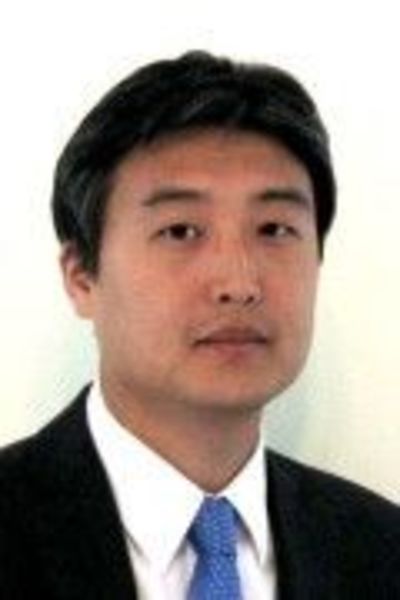
Seventy years have passed since the end of the war. The once vivid memories of war may soon gradually be diminished to past history for many people. However, I would like to reflect on the sufferings the war has caused. The war that Japan waged many decades ago crippled the lives of numerous people in the Asia-Pacific. The war had also dehumanized many Japanese soldiers and caused innocent Japanese to suffer as well. The legacy of war continues to haunt many nations and citizens till this day. I feel deep sorrow and regret because of Japan’s past aggressions and I would like to reaffirm that I am committed
to lasting peace and cooperation in the region.
The war and Japan’s colonial rule created much suffering, but I would like to especially ask forgiveness to the women from many nations who suffered under colonial rule. War and violence almost always rages from the stupidity of men, but children, the elderly, and women suffer the most inadvertently. I provide my sincere apologies to the women who suffered indignity under the Japanese military and assure that Japan will work to restore the dignities of these women. We now live in an era where women will play more important roles in society. I will work to help heal the scars of women from the war and also hope to contribute to a future where women will partake a more active role in politics and society.
On this occasion, I would also like to recognize and thank the Japanese people for their accomplishments since the war. I feel great pride in how the Japanese people bounced back from the turmoil of war and how we have cherished the value of peace. I believe we, as a nation that had waged war, afflicted our neighbors, and also paid for the consequences with many of our own innocent lives, are in a good position to contribute more toward world peace and stability by reflecting on our own experiences.
The world’s geopolitics is as challenging as ever. Asia’s economic ascendance on the world stage has created many opportunities as well as challenges in the region. I believe that any challenges can be discussed with an open mind and I am willing to reach out first in situations of challenges and actively intermediate to resolve misunderstandings and disagreements in the Asia-Pacific. In addition to the challenges in the Asia-Pacific, the world faces common threats ranging from climate change, natural disasters, economic crises, and terrorism. Japan is not immune from these threats, as we have seen in recent years. The Japanese government will be cooperating with the international community and close allies including the United States to prevent and deal with these future challenges.
Lastly, I would like to announce a new project that commemorates the end of the war. Before the scars and memories of the war fade to far into history, I have decided to initiate the construction of a major war memorial in Japan. This
project will be unique in its international effort. The history, memories, and scars of the war from not just Japan but all affected nations of the Asia-Pacific will be embodied in the new museum. The planning and construction of this museum will be a global endeavor incorporating ideas and suggestions from many nations. We move forward desiring to be wiser and learning from our past mistakes. I believe this is one step that will help us to continue to make progress toward peace with our own people and our friends.
<Henry S. Rowen>
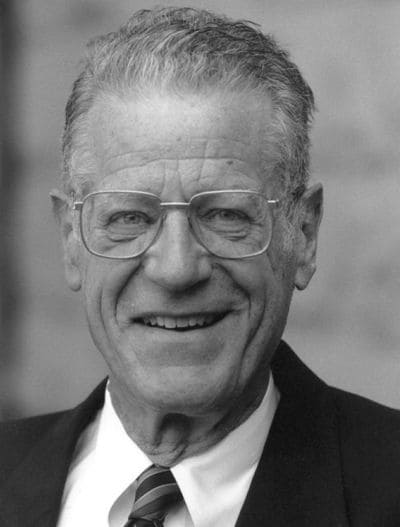
This year is the seventieth anniversary of the end of World War II. For Japan,these have been years of peace and the Japanese people and others have cause to be grateful for this fact. Our talents and energies have been devoted to economic and other social ends to their benefit and to that of other peoples as well.
It is useful to look at the curve of history over a longer time. While the Meiji Restoration in 1868 led to the modernization of the country, it also had some regrettable consequences in the rise of a spirit of militarism in the country and in Japan becoming an aggressive colonial power.
We inflicted great harm on other peoples and, in turn, we have paid heavily for our faults. Several million of our soldiers and civilians were killed, Tokyo and other cities were destroyed, and Japan is the only country to have suffered from atomic bombing.
That experience lends force to the goal of eliminating nuclear weapons from the face of the earth.
Those terrible events took place in the now distant past. Japan has become an exemplary world citizen. It is governed by democratic principles. It is a large trading country. It is the second largest donor of foreign aid to developing countries and it is a large contributor to United Nations Peace Keeping operations,
for example in Cambodia, Mozambique, Golan Heights, Timor-Leste and Haiti, among others. We are prepared to do more as needs arise.
Some other nations want us to keep apologizing for our earlier aggressions.Vigilance is always needed to assure that we stay on the right course but our record of the past seventy years and the health of our democratic institutions should be reassuring. Moreover, some of our critics might reflect on their own behavior and ask themselves how worthy it appears to others and might they have done some things for which to apologize.
We are in a century which promises to be one in which Asian countries will play increasingly important roles and Japan expects to be a full participant in this process.
We look forward to a future in which we will work in harmony with other nations.
<Daniel Sneider>
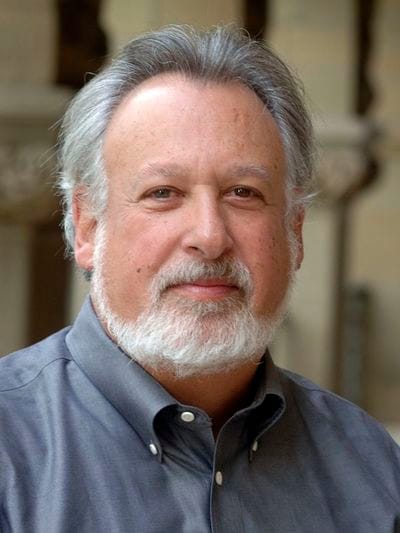
Today we are commemorating the date on which World War II ended in Asia.
This war brought death and destruction to many nations in Asia. More than three million Japanese lost their lives in World War II. Japanese cities, and their inhabitants, were wiped out, two of them by the first use of atomic weapons in war. Tens of millions of Chinese, Koreans, Filipinos, Burmese, Vietnamese, ndonesians, Malayans, Pacific Islanders and so many others were victims in this terrible conflict. Allied soldiers, and those who fought for the Japanese Empire, are buried in battlefields from China to the islands of the Pacific.
I bow my head in respect and with a heavy heart for all those who suffered the consequences of this terrible war. For some nations, this date is a celebration of victory, of liberation from injustice, occupation and colonial rule. For Japan, it marks defeat, and renewal. We Japanese must take this moment to remember the suffering, to reflect on the choices we made in our history, and to reaffirm the lessons of the past that are embodied in the seventy years of peace that have followed.
It is a day of remembrance. As German President Richard von Weizsacker said on the commemoration of the fortieth anniversary of the end of the war in Europe:
“Remembering means recalling an occurrence honestly and undistortedly so that it becomes part of our very beings. This places high demands on our truthfulness.”
Many Japanese of that wartime era sincerely believed that they were serving their nation, fighting and suffering at home for the good of Japan. While we honor their patriotism and their sacrifice, we cannot escape the truth that the war was the consequence of the mistaken decisions of our leaders. The militarists and their backers undermined the democracy and constitutional rule that grew from the Meiji Restoration, resorting to assassination and political repression to plunge the nation on the road to war in the 1930s.
Having already established colonial rule over Asian neighbors, the militarists embarked on a policy of imperialist expansion into Northeast China and Southeast Asia, launching a wider war against China and finally decided to carry out an aggressive war in the Pacific. The Japanese people themselves suffered at the hands of the militarists who brought destruction to our homes.
We cannot, nor do we ever wish, to evade these irrefutable facts of history.I echo my predecessors in expressing here, on this day of remembrance, my feelings of deep remorse and state my heartfelt apology.
Let me also make clear, however, that our goal is not simply apology. Apology is merely a part of the process of reconciliation with those who were once the victims of Japanese aggression. Reconciliation, however, must be, by its nature, a mutual process. For all of us, there can be no reconciliation without remembrance, not only today but by the generations that follow us.
I believe that the history of Japan during these past seventy years is a demonstration that we have learned at least some of the lessons of the war. We have been a nation dedicated to peace. Our constitution renounced war as a sovereign right of the nation and the threat or use of force as a means of settling international disputes. Except in our own self-defense, we will never use armed force. We have stood by that pledge and we call upon all nations, and especially in Asia, to join us in that noble cause.
Today I must pay tribute finally to my fellow Japanese who have worked so hard to rebuild Japan after the war, to create a new Japan that forever separates itself from its wrongful past and celebrates its great civilization and culture. And we express again our gratitude to those who aided the return of Japan to the family of nations, to our former foes who are now our allies and friends, and to those who join us in building a peaceful future in the Asia-Pacific region and the world.

